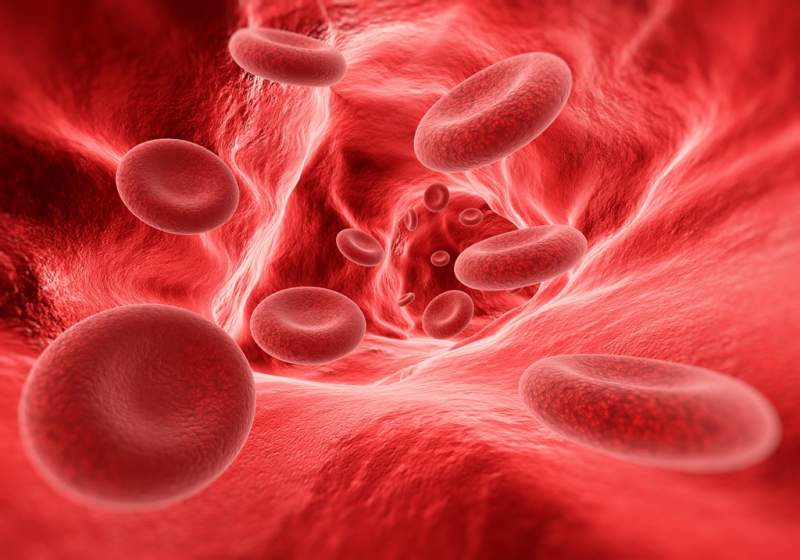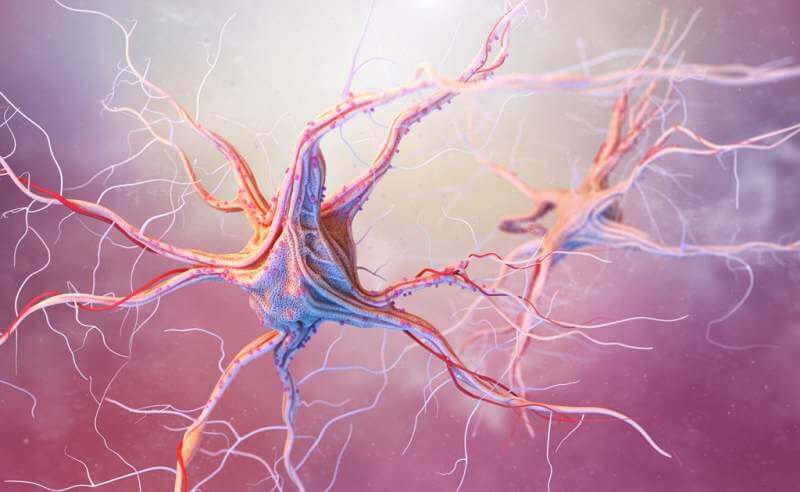The modern lifestyle is fast and hectic, making anxiety and stress a part and parcel of it. There are personal and professional issues that a majority of people face and maintaining a work-life balance is a challenge for most of them. Despite the fact that these issues are so common, they cannot be ignored because the impact can be far-reaching and sometimes even life-threatening. Stress acts a silent killer that gradually takes toll of physical and mental health. It increases the risk of a number of serious health conditions such as heart disease, hypertension, diabetes, obesity, and more. At the same time, it can cause insomnia, eating disorders, aches and pains, and loss of memory and concentration. Moreover, it can bring a host of emotional problems such as mood swings, lethargy, and strained relationships. The ill-effects of stress do not end here as it can cause many other health problems too.
Stress has been identified as one of the leading causes of vein disease, specifically varicose veins. This is the condition characterized by the weakening of the venous walls and valves. It leads to problems related to circulation, with blood pooling up in the lower extremities (legs). Even though the disease may not have many short-term implications, it can turn serious if left untreated. Deep Vein Thrombosis (DVT) is one of the more serious effects on varicose veins. Primarily, the disease is attributed to genetics, which means that you are more likely to suffer from it if it runs in the family. Also, people who have to stand and sit in the same position for long hours are at high risk. Research suggests that long-term stress is linked with varicose veins and other vein-related problems. Therefore, it becomes important to understand the connection between stress and vein health so that you can find ways to prevent the stress-related damage to your veins and circulatory system.
Stress affects circulation
 Chronic stress can compromise vein health by causing circulation issues. Being stressful puts you at the risk of hypertension, resulting in elevated blood pressure which puts extra pressure on the veins. Consequently, they have to work harder to perform their key function of pumping the blood back to the heart. In such a case, there is a possibility of the blood getting pooled up in the veins, which results in swelling and weakness. The venous pressure continues to build up as the stress levels increase over time and this can cause varicose veins in the long run.
Chronic stress can compromise vein health by causing circulation issues. Being stressful puts you at the risk of hypertension, resulting in elevated blood pressure which puts extra pressure on the veins. Consequently, they have to work harder to perform their key function of pumping the blood back to the heart. In such a case, there is a possibility of the blood getting pooled up in the veins, which results in swelling and weakness. The venous pressure continues to build up as the stress levels increase over time and this can cause varicose veins in the long run.
Stress leads to weight gain
 Stress elevates the risk of weight gain as it upsets the hormonal balance and makes you susceptible to binge eating. Cortisol, the stress hormone, is responsible for fueling up the body by increasing the blood sugar levels during stressful situations. The release of the hormone is a natural mechanism that works well for coping with short-term issues. However, exposure to long-term stress causes a considerable increase in the levels of cortisol. In such a situation, the brain sends signals to the body that it is depleted and needs to refuel. This causes a constant feeling of hunger and one tends to eat more and gain weight. Weight gain puts extra pressure on the leg veins and they get weaker with the passage of time.
Stress elevates the risk of weight gain as it upsets the hormonal balance and makes you susceptible to binge eating. Cortisol, the stress hormone, is responsible for fueling up the body by increasing the blood sugar levels during stressful situations. The release of the hormone is a natural mechanism that works well for coping with short-term issues. However, exposure to long-term stress causes a considerable increase in the levels of cortisol. In such a situation, the brain sends signals to the body that it is depleted and needs to refuel. This causes a constant feeling of hunger and one tends to eat more and gain weight. Weight gain puts extra pressure on the leg veins and they get weaker with the passage of time.
Stress makes a person averse to health
 A person who is stressed out is less likely to take care of his or her health. Such people are more likely to fall prey to unhealthy habits such as consuming high-fat diet, smoking and alcoholism. They are also less inclined to maintaining a healthy and active lifestyle. These factors have a direct impact on vein health and can result in vein diseases if steps are not taken to get rid of them. Moreover, stressful situations cause people to pay less attention to their body. There are chances that they may not notice the beginning of vein problems or even ignore them. Lack of timely treatment complicates the problems even more and increases the probability of the problems getting serious.
A person who is stressed out is less likely to take care of his or her health. Such people are more likely to fall prey to unhealthy habits such as consuming high-fat diet, smoking and alcoholism. They are also less inclined to maintaining a healthy and active lifestyle. These factors have a direct impact on vein health and can result in vein diseases if steps are not taken to get rid of them. Moreover, stressful situations cause people to pay less attention to their body. There are chances that they may not notice the beginning of vein problems or even ignore them. Lack of timely treatment complicates the problems even more and increases the probability of the problems getting serious.
Dealing with stress and keeping your veins in good health
 Now that the connection between stress and vein health has been established, it is important to look for a resolution of the problem. It is one causative factor that you can easily deal with. Stress is a totally preventable condition and you can make a few modifications in your lifestyle to alleviate it. Here are some measures that you can take to cope with stress and maintain an optimal vein health:
Now that the connection between stress and vein health has been established, it is important to look for a resolution of the problem. It is one causative factor that you can easily deal with. Stress is a totally preventable condition and you can make a few modifications in your lifestyle to alleviate it. Here are some measures that you can take to cope with stress and maintain an optimal vein health:
- Maintain an active lifestyle with proper workout routine and stress-busting exercises such as walking, cycling, and swimming. Regular exercise keeps your weight under check and also releases stress to a significant extent.
- Eat healthy with a diet high in dairy, lean protein, fresh fruits and vegetables and low in fats, sugar, salt and unhealthy carbohydrates. Drink plenty of water as it keeps you well hydrated and flushes out toxins from the body. Both these factors go a long way in keeping you distressed.
- Practice meditation and yoga to soothe and heal your body and mind and also keep the blood circulation at its best. Listen to music and indulge in your favorite hobbies that help you feel relaxed.
- Avoid letting work consume your life and maintain a work-life balance to give your body and mind adequate rest. Have adequate sleep daily and take break from work on a periodic basis.
- Stay away from bad habits such as alcoholism, cigarette smoking and substance abuse. These habits not only deprive you of good health but also alleviate the stress levels.
- Pay attention to your body and seek medical help if you feel that you might be suffering from any health issues. Have regular checkups to evaluate your health.
Both stress and vein problems can be dealt with if addressed in time and with proper medical treatment. After all, it is your responsibility to take care of your body and health and they deserve the best you can give.
